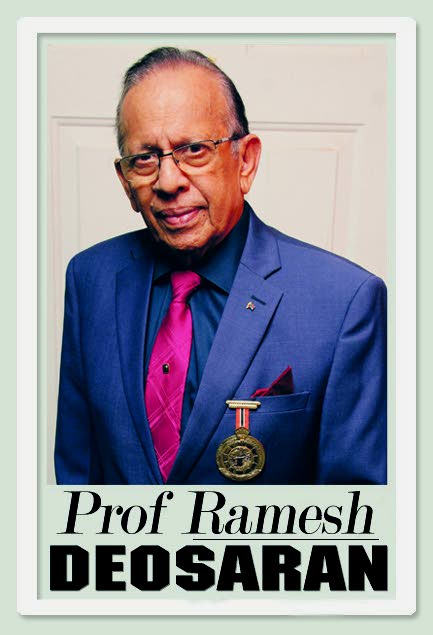Citizens must exercise individual responsibility

During this holy season, I heard repeated appeals from church leaders for individual responsibility by citizens. For example, Catholic Archbishop Jason Gordon and Hindu Dharmacharya Dr Rampersad Parasram noted the many humane values of individual responsibility.
It’s worth emphasising: individual responsibility is the foundation of a democratic society. It has a critical role in criminal justice and socio-economic development. Religion sees consequences even after death.
On individual responsibility, the Holy Quran says that after death, the record of your actions, good or bad, will be placed before you for judgement. And it is you and you alone who will be held responsible. No one else to blame, not father, mother, spouse, uncle, teacher, government.
Now there are other verses allowing mercy, but the overriding message is that you are directly responsible for your actions and the consequences.
Hinduism also presses for individual responsibility through the laws of karma: that is, the good or bad that you do here will lead to a lesser of better life through reincarnation. And layman as I am, I still ask: is there some room for mediation before the final decision?
Christianity provides heaven for those judged to be good and Hell for those judged to be bad, with purgatory as a place for temporary suffering, a kind of mediation centre for the “not so bad.”
There is much more, but the central point about individual responsibility stands tall. Individual responsibility weakens and falls down when consequences do not follow swiftly and appropriately. This is a major explanation for escalation of delinquency and crime here. There will always be crime. A critical way to help control crime is by the application of consequences – punishment or rehabilitation of any kind.

It is a lost cause to depend only on the “good conscience” of people. Even a clear knowledge of right and wrong doesn’t prevent some people from committing crimes – from white-collar, robbery, rape to trafficking and murder.
In fact, many churchgoers who know about the Quran record book, Hindu reincarnation and heaven and hell still sin. The social-control effects of religion on human behaviour seem quite limited or of no effect at all.
In fact, there are those who believe in no religion or God and seem to live as well as those who do.
There is still a saving clause in this, though. That is, religion teaches children to fear God and not do wrong things. Or children are told if they love God they must do the right things. The picture of going to the fires of hell scares a lot of children. Or being reincarnated as a lonely beggar.
The question must be asked, at least in psychology or theology, why, with so many churches and preaching around, so many people still commit wrong, especially brutal harm to others? Are competing influences too overbearing? Are the survival instincts of envy, hate or greed too powerful for the gentle virtues of kindness, brotherly love or respect?

Of course, this question is nothing new. It is regularly asked in churches. But like the slogan “say no to drugs,” it seems to fall on deaf ears.
In explaining the message of the resurrection, Archbishop Gordon says it is a call to reject the easy and sinful life, be responsible. I quickly remembered reading about Christianity's “seven deadly sins,” which really help undermine a country’s prosperity and civility.
These are pride, covetousness, lust, anger, gluttony, envy and sloth. Envy and sloth are virulent. Envy mixed with hate is a poisonous potion. Envy, no respecter of race, religion, class or gender, poisons its possessor’s mind, sometimes leading to murder. Sloth is laziness without individual responsibility. The slothful thrive on victimhood, blaming others for their failures.
Leaving the evil side for a while, we must note that there are many good people around still holding the centre. The world may be bad, or a bit “crazy” as Archbishop Gordon complained last week, but there is still hope.
One thing which may help is to recognise and encourage good people. Good deeds that go unappreciated, unrecognised are not likely to be repeated. Unconditional love and selfless charity are more the exception than the rule. Good, kind and dutiful people need to be loved and encouraged for living lives of individual responsibility.


Comments
"Citizens must exercise individual responsibility"